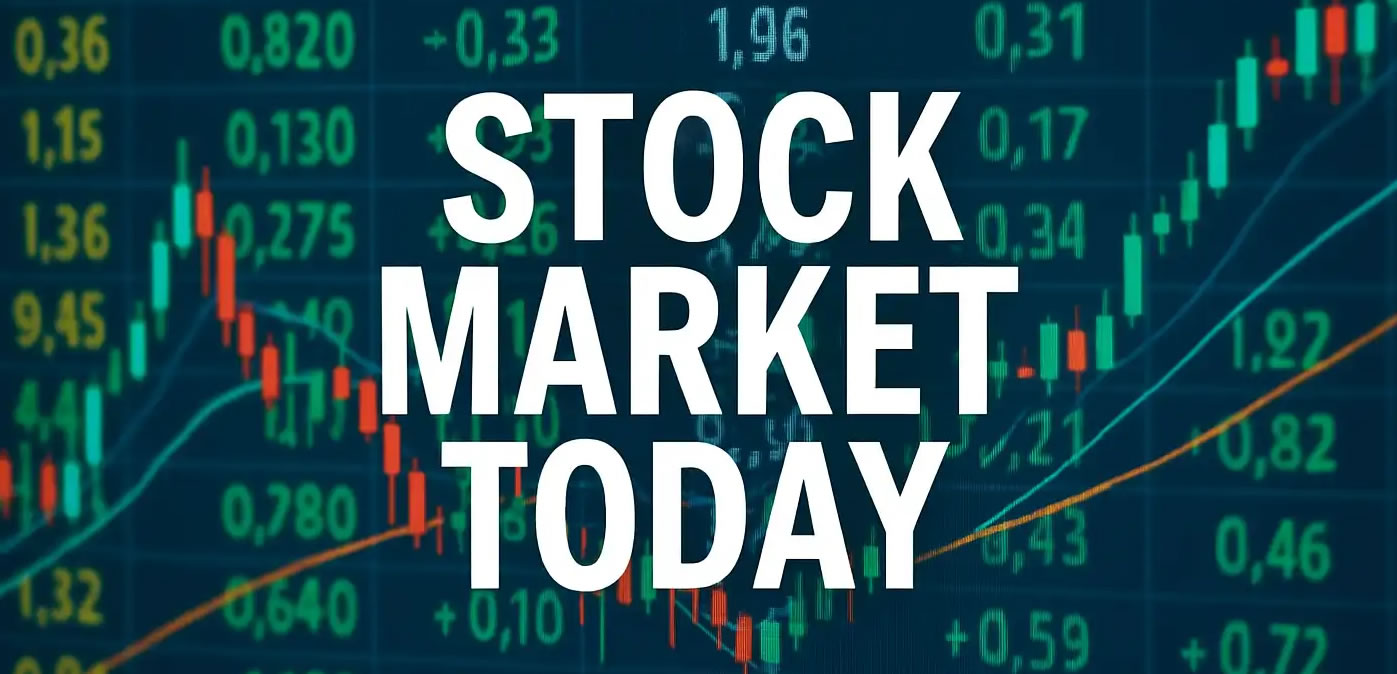Wall Street Slumps as Geopolitical Tensions Drive Oil Higher; Broadcom Defies Trend on AI Optimism

U.S. equity markets faced significant downward pressure during afternoon trading on Thursday, March 5th, 2026, as escalating geopolitical tensions in the Middle East sparked a flight from risk and sent energy prices climbing. While the broader market struggled to maintain the previous session's gains, a handful of technology names, led by a blockbuster forecast from Broadcom, managed to provide a partial buffer against deeper losses.
Major Market Indexes and Afternoon Activity
As of the early afternoon session, the Dow Jones Industrial Average (DJI) was the day's primary laggard, dropping approximately 964 points, or 2.0%, as blue-chip components felt the weight of rising pro-inflationary risks. The S&P 500 (SPY) retreated by 1.3%, falling to around 6,784 points, while the tech-heavy Nasdaq Composite (IXIC) showed relative resilience but still traded lower by 1.1%.
The primary catalyst for the sell-off remains the ongoing conflict involving U.S.-Israeli forces and Iran, now entering its sixth day. Reports of tanker traffic reaching a standstill in the Strait of Hormuz have sent Brent crude oil prices toward the $84 mark, raising fears that a sustained energy spike could exhaust consumer spending power and force the Federal Reserve to maintain higher interest rates for longer. Consequently, the United States Oil Fund (USO) surged over 4.2% in afternoon trading.
Sector Performance and Leading Stocks
Sector performance was sharply divided. The Energy and Defense sectors saw increased interest as safe-haven plays, while Consumer Discretionary and Information Technology sectors faced headwinds. However, Broadcom (AVGO) emerged as a major outlier, surging nearly 7% after the company reported record-breaking fiscal first-quarter 2026 earnings. CEO Hock Tan's declaration of a clear path to $100 billion in AI chip sales by 2027, alongside a new partnership with OpenAI, reignited optimism in the semiconductor space.
This positive momentum provided some support to Nvidia (NVDA), which traded nearly flat to slightly up by 0.37% despite the broader market rout. Conversely, Apple (AAPL) fell 0.7% as investors weighed the launch of its new "MacBook Neo" against the backdrop of global supply chain disruptions. Other "Magnificent Seven" members saw mixed results: Microsoft (MSFT) edged up 0.45%, while Tesla (TSLA) and Meta Platforms (META) both traded in the red, down 0.16% and 1.18% respectively.
In the Dow, the heaviest losses were concentrated in Merck (MRK), Johnson & Johnson (JNJ), and Walmart (WMT), all of which fell more than 2% during the session. On a brighter note, Salesforce (CRM) gained 4.68%, and Bilibili (BILI) saw its shares jump following a quarterly report that featured a staggering 478% year-on-year surge in net income.
Upcoming Market Events and Economic Data
Investors are also navigating a dense calendar of economic releases. Earlier today, the Department of Labor reported that initial jobless claims for the week ending February 28th rose to 222,000, slightly exceeding the 216,000 estimate. While the increase is modest, it has added to the cautious sentiment ahead of tomorrow’s highly anticipated February Non-Farm Payrolls report.
Market participants are closely monitoring whether the labor data will alter the Federal Reserve's current trajectory. With the manufacturing prices-paid index hitting a three-year high earlier this week, the combination of a cooling labor market and rising energy-driven inflation has left traders pricing in a lower probability of a June rate cut. All eyes remain on the evolving situation in the Middle East and tomorrow's jobs data to determine the market's direction heading into the weekend.